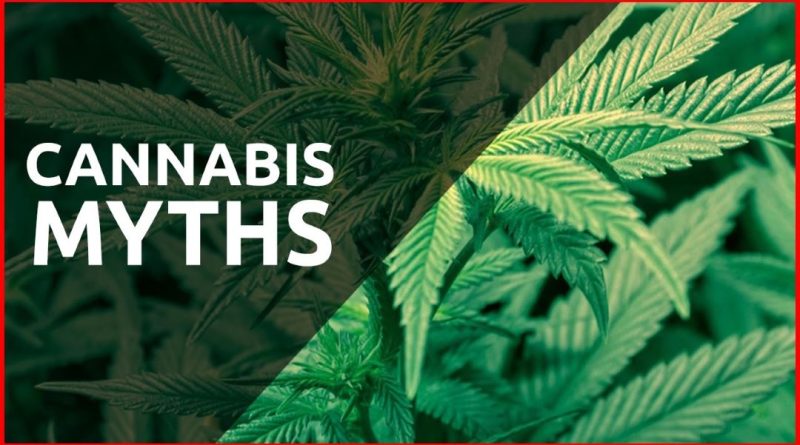Cannabis myths as Germany moves in favor of legalizing the drug
Germany might be the next country to legalize cannabis, but the drug is still shrouded in misinformation. DW’s fact checking team examines four myths surrounding cannabis and whether or not it should be legal.
Should cannabis be legal? Several governments, such as those of Canada and South Africa and several US state governments, have greenlighted recreational use of the substance in recent years.
Now, Germany’s Bundestag is set to vote on a new cannabis law. If it passes, which is almost assured considering that the representatives of all three government parties are in favor of it, the growth and consumption of limited amounts of the drug will become legal for adults as of April 1.
Still, in many parts of the world, the possession and consumption of cannabis is prohibited and often severely punished.
For years, discourse both online and off surrounding cannabis legalization has been steeped in falsehoods and claims that, when placed under scrutiny, can’t be proven. DW’s fact-checking team took a look at the research and spoke with experts to clarify some of the most popular myths.
Is cannabis a gateway drug?
Claim: Cannabis is “a gateway drug” according to, for example, German politician Markus Söder.
DW fact check: Unproven.
The theory that using cannabis leads to the use of harder and more dangerous drugs is probably one of the most common cases made against legalization, as well as one of the oldest. Söder and his colleagues used the argument in an interview with the German tabloid newspaper Bild in April 2023, accusing opposition parties of “trivializing” the drug.
On social media, supporters of legalization have generally opposed the claim.
Fact: There is a correlation between cannabis use and later use of harder narcotics, studies have shown. The earlier and the more frequently people use cannabis, the higher the likelihood of later use of other illicit drugs.
But correlation is not causation
“If you look at how someone became a heroin user, you are very likely to find cannabis use along the way,” said Dr. Stefan Tönnes, head of forensic toxicology at Frankfurt University Hospital. “But if you look the other way around, how many cannabis users go on to use heroin afterward it’s very, very few.” This shows that a correlation alone is not proof of a causal relationship.
The gateway drug theory cannot be completely disproved, said Dr. Eva Hoch, a psychologist in the psychiatry department of the University Hospital in Munich. She has been studying the effects of cannabis for about 20 years.
“Cannabis naturally stimulates the reward center in the brain and could pharmacologically promote drug affinity,” she said.
But there are also many other risk factors for illicit drug use that need to be considered, she added. The National Institute on Drug Abuse in the US says so, too, adding that more research is needed on the question of cannabis as a gateway drug.
For the time being, the claim that cannabis is a gateway drug remains unproven.
Is alcohol more dangerous than cannabis?
Claim: Alcohol is “over 100 times more dangerous than cannabis”, according to posts on X, the social media site formerly known as Twitter.
DW fact check: Misleading.
It is often claimed especially by those advocating for legalization that alcohol is far more harmful than cannabis. Several social media post and newspaper articles mention a study that claims alcohol is 114 times more dangerous than cannabis.
This claim does not hold up, the figure is nowhere to be found in the cited study, which only shows that the risk of a fatal alcohol overdose is greater than that of a fatal cannabis overdose.
Since its effect starts shortly after being smoked, the strength of intoxication caused by cannabis can be better compared to alcohol, Tönnes said, thereby reducing the risk of an overdose. However, “when cannabis is consumed like a pastry, overdoses can occur as well.”
With that said, the negative effects of both drugs don’t start with overdose. But the study referenced in these posts doesn’t address the nonfatal consequences.
The different intoxicating effects of alcohol and cannabis come with their own dangers, Tönnes said, adding that it’s important to take into account the effects on the user’s social environment and mental health.
“Alcohol has a very significant effect, which is disinhibition and increased risk-taking,” he said. “This is actually less the case with cannabis. But here we have the unpredictable paranoia risk, and that’s where individual sensitivity to cannabis effects can vary.”
The negative effects of alcohol consumption on the body have long been proved. “Alcohol has a high organ-damaging effect and causes more health damage than cannabis,” Hoch said. But “it also depends on the intensity of use, not just the substance.”
It’s hard to clearly assess the health risks of cannabis because of its various forms of use, Hoch said. In Europe, for example, cannabis is often smoked with tobacco, which is well-known to have harmful carcinogenic effects, this is thus indirectly related to cannabis use.
So alcohol overdoses are more likely than cannabis. But both drugs can endanger the physical and mental health of users and have a negative impact on their environment, even in small quantities. This danger can hardly be compared with one number, the claim that alcohol is 114 times more dangerous than cannabis is, therefore, misleading.




